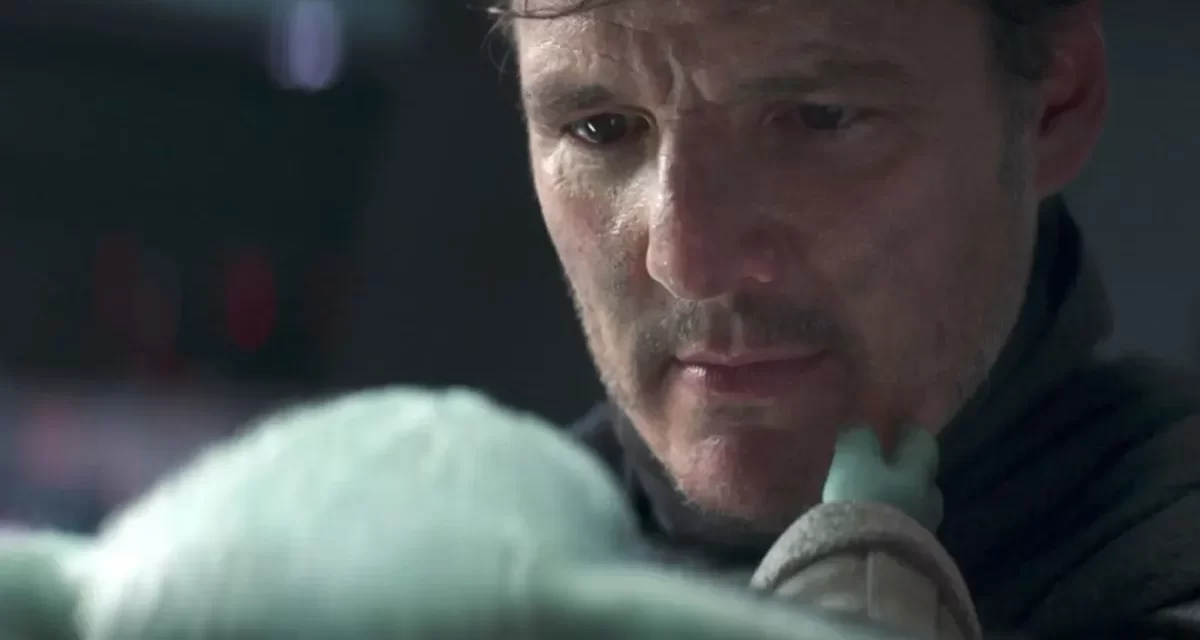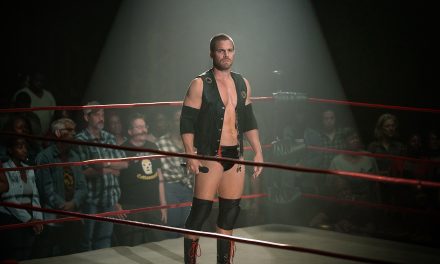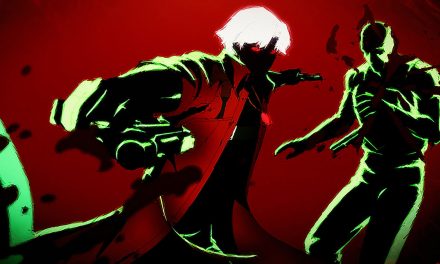The premiere episode of Star Wars: The Mandalorian season 3, The Apostate, dropped last week. It seems possible that a main story arc of the season will be a deeply personal journey for Din Djarin (voiced by Pedro Pascal). That’s because of the premiere’s plot. That personal journey even be the main arc.
It seems possible that the journey will explore his faith in the Children of the Watch. That’s the fundamentalist religion of which he is an apostate from because he removed his helmet. (“Children of the Watch are a cult of religious zealots that broke away from Mandalorian society. Their goal was to reestablish the ancient way,” Lady Bo-Katan Kryze (Katee Sackhoff) told Din.)
That would be intriguing.
Din’s Motivations

Why Din is motivated by such a purity cult would be interesting.
And it would be even more interesting if Din were to ask himself why he is motivated by such a religion. It says that things are bad … because.
A nexus of the challenges and practicalities having to do with Din’s apostasy could see an exploration of motivations by Din. And/or Din’s own questions about that. Those would be of Din and his surrogate child, Grogu, trying to meet the Children of the Watch’s high demands with those demands. (In this case, it would involve problems and realities of seeking to restore identity and acceptance. Which would be a result of being an “apostate” for taking off a helmet.)
Do Mandalorian waters mean soul searching for Din?

Din wants to bathe in living waters beneath the mines of the planet Mandalore. That’s because the Children of the Watch requires it for Din to atone for his transgression of removing his helmet. (In a Christian context, Din is essentially seeking the waters of baptism. And “living water” is a reference to Jesus and his teachings.) It seems clear that Din would have a great challenge in trying to find the waters beneath the mines of Mandalore. (If he can. According to the premiere, the mines have been destroyed.)
You could argue that Din is making a ridiculous pursuit. That’s because the cult isn’t worthy of him due at least to its helmet mandate and the requirement to be redeemed from it. And because the mines have been destroyed. Will Din ask questions along these lines? And if so, will he have a faith crisis?
And there are other ways that his faith-related journey could also cause him to look deep inside himself.
It seems clear that he has already had questions regarding his faith.
‘Fundamentalism’ and ‘cult’

I’ve seen the fundamentalist purity cult of my background consider folks who seem to be as beautiful as Din to also be apostates. (Fundamentalism is “a movement or attitude stressing strict and literal adherence to a set of basic principles” and “a movement in 20th century Protestantism emphasizing the literally interpreted Bible as fundamental to Christian life and teaching,” according to Merriam-Webster dictionary. Religions that believe “in traditional forms of a religion or believes that what is written in a holy book, such as the Christian Bible, is completely true,” are fundamentalist, according to the Cambridge Dictionary. A cult is “a religion regarded as unorthodox or spurious,” “its body of adherents” and “great devotion to a person, idea, object, movement, or work (such as a film or book),” “the object of such devotion” and “a usually small group of people characterized by such devotion,” according to Merriam-Webster.)
‘Apostates,’ like Din
The cult of my background is The Church of Jesus Christ of Latter-day Saints. Here are some examples of individuals it has excommunicated even in fairly recent years (in no particular order):
- Natasha Helfer, after observing science behind sexual health.
- Denver Snuffer, after using doctrine from the cult to argue it had fallen. And that there needed to be a restoration of doctrines introduced by Joseph Smith, founder of the Latter-day Saint movement.
- Kate Kelly, after leading an organization that asked the cult leaders to pray and ask if women should be part of the cult’s priesthood. And after requesting access into the cult’s priesthood sessions, though it granted access.
- Sam Young, after starting a hunger strike to protest sexually explicit interviews by adult church leaders and children.
- Bill Reel, after asking questions and featuring individuals’ stories regarding the church.
- John Dehlin, after also doing that.
- Rock Waterman, after using doctrine from the cult to argue it had fallen.
- Nelson and Lacey Whiting, after doing the same.
Even 57% of LDS say they are somewhat or very troubled by excommunications of “feminists, intellectuals, and activists.”
Those nine individuals did those things publicly, but why should that matter?
Also, other seemingly beautiful individuals who were excommunicated are Carson Calderwood, Jake and Amy Robinson Malouf and Marisa Pond.
And both right- and left-leaning LDS also were excommunicated in the middle of just the last decade.
The church also has a history of excommunicating, going back to the Smith era.
Din’s Possible Faith-Related Arc: Thoughts

Hopefully viewers, including adherents to fundamentalist cults, have learned and will learn something from The Mandalorian.
And it’s incredible that a show in the Star Wars universe has suggested and may suggest problems that cults and fundamentalist religions cause. That’s because Star Wars is influenced by religion.
And odds are that we are in for a wonderful ride. Showrunners Jon Favreau and Dave Filoni want to tell this story so much, it seems. After all, they introduced it in The Book of Boba Fett. That show seemed like it would be much more about someone else (Boba). They also took Grogu away from the iconic Luke Skywalker, who some fans have named their children after. And from training by him that Star Wars fans wanted to say in order to further tell the Din-Grogu story.






